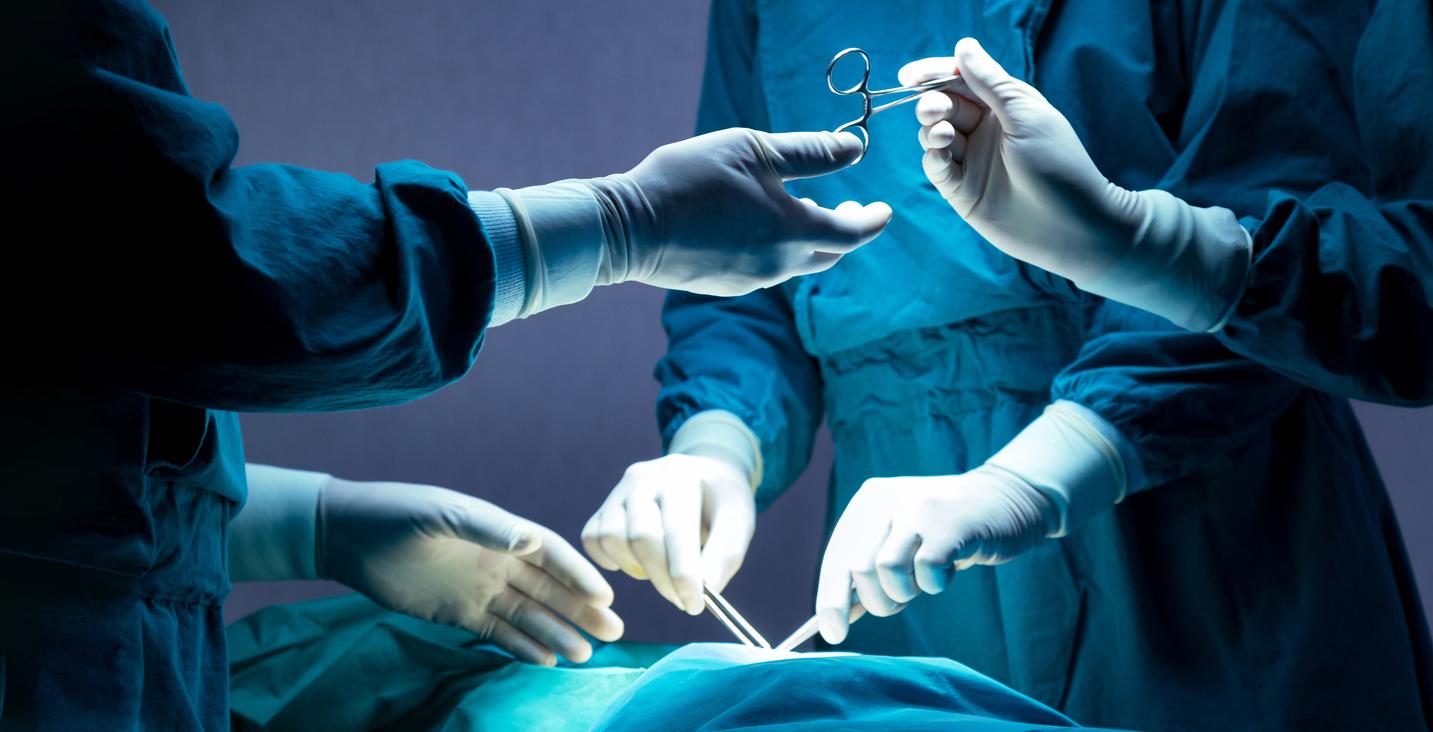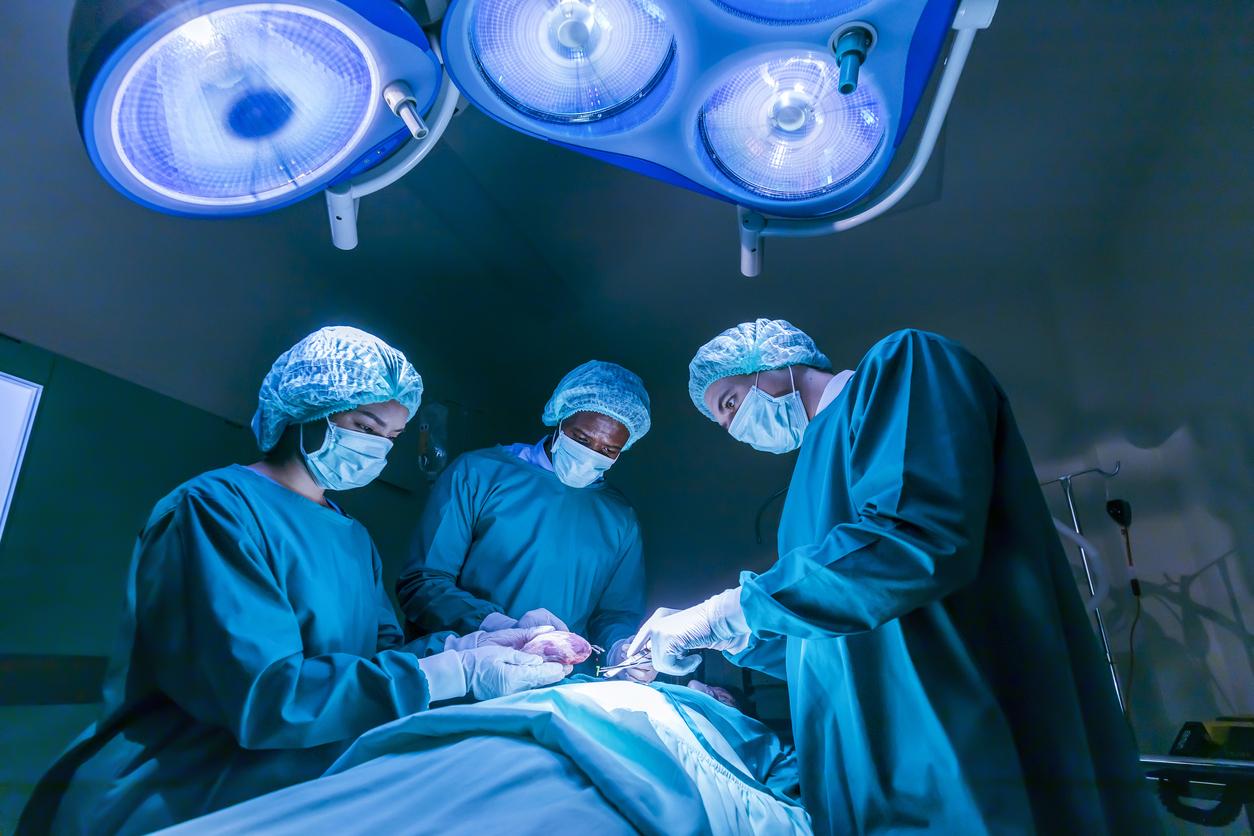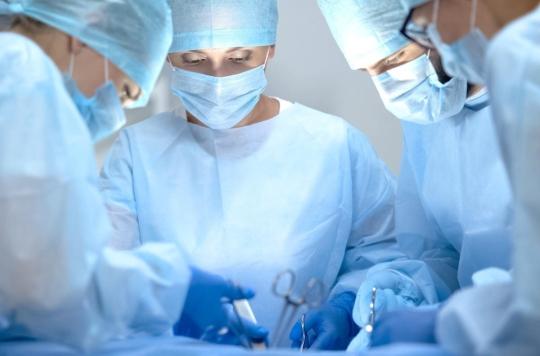Transplants have increased by 30% in 10 years in France. Kidney transplants are the most common with 3,232 operations performed, followed by liver and heart transplants.

Not all French people are aware of this, yet we are all concerned by organ donation. Indeed, current French law makes each of us a suspected organ donor. On the occasion of the 16th National Day of Reflection on Organ Donation organized on June 22, the Biomedicine Agency recalls this reality. The opportunity for Why actor to draw up a list of the most transplanted organs.
Transplants have experienced a 30% increase in 10 years. Thus, 5,746 transplants were performed last year, against 4,428 in 2006. Kidney transplants are the most common with 3,232 operations performed, ahead of liver (1,280) and heart (423) transplants. ) and lung (327).
Explosion of grafts from the living
Note that kidney transplants from living donors are booming: + 8% in one year. The Agency has made this type of donation one of its priorities, because it is the best treatment for a patient and does not affect the donor’s quality of life. But “historically, France is rather behind compared to other European States”, conceded Anne Courrèges in an interview with Why actor.
The director general pointed to two main reasons for this. “This delay is due both to cultural reasons, and to medical culture itself. The principle of medicine is to do no harm. However, for the donation of the living, the doctor intervenes on a person in good health, and then there were a few incidents which could have distressed certain teams ”.
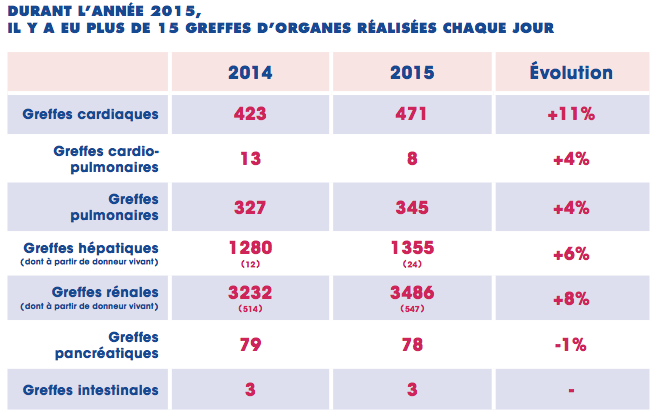
Corneas at the top of tissue transplants
In addition, doctors can also transplant tissues such as bones, arteries, heart valves, veins, tendons or ligaments. In this regard, the eyes are never removed with a view to transplanting a patient, only the thin membrane on the surface of the eye, the cornea, is removed. In 96% of operations, it is this type of tissue that is transplanted. The intervention makes it possible to fight against certain forms of blindness due to the opacification of the cornea or to hereditary malformations.
In total in 2015, 32,254 people were tissue donors during their lifetime (surgical residues, placentas, etc.) and there were 5,945 deceased donors, some of whom were also organ donors but the vast majority of whom were tissue donors. only (samples taken in the death chamber less than 24 hours after death).
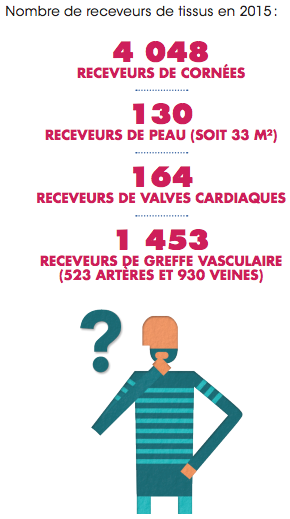
Presumed consent as of January 1, 2017
Marisol Touraine’s health law adopted in January 2016 reaffirms the principle of presumed consent while maintaining support and dialogue with relatives. The national register of refusals kept by the Biomedicine Agency is recognized as the main means of expressing refusal. But this is not the exclusive way.
Following a consultation carried out during the first half of 2016, the other methods of refusal will be specified by a decree of the Council of State. Rules of good practice relating to approaching relatives will be proposed by the Agency and will be the subject of a decree during 2016. The new provisions will come into force on January 1, 2017 at the latest.
Find The Health Guest with Anne Courrèges, Director of the Biomedicine Agency
.








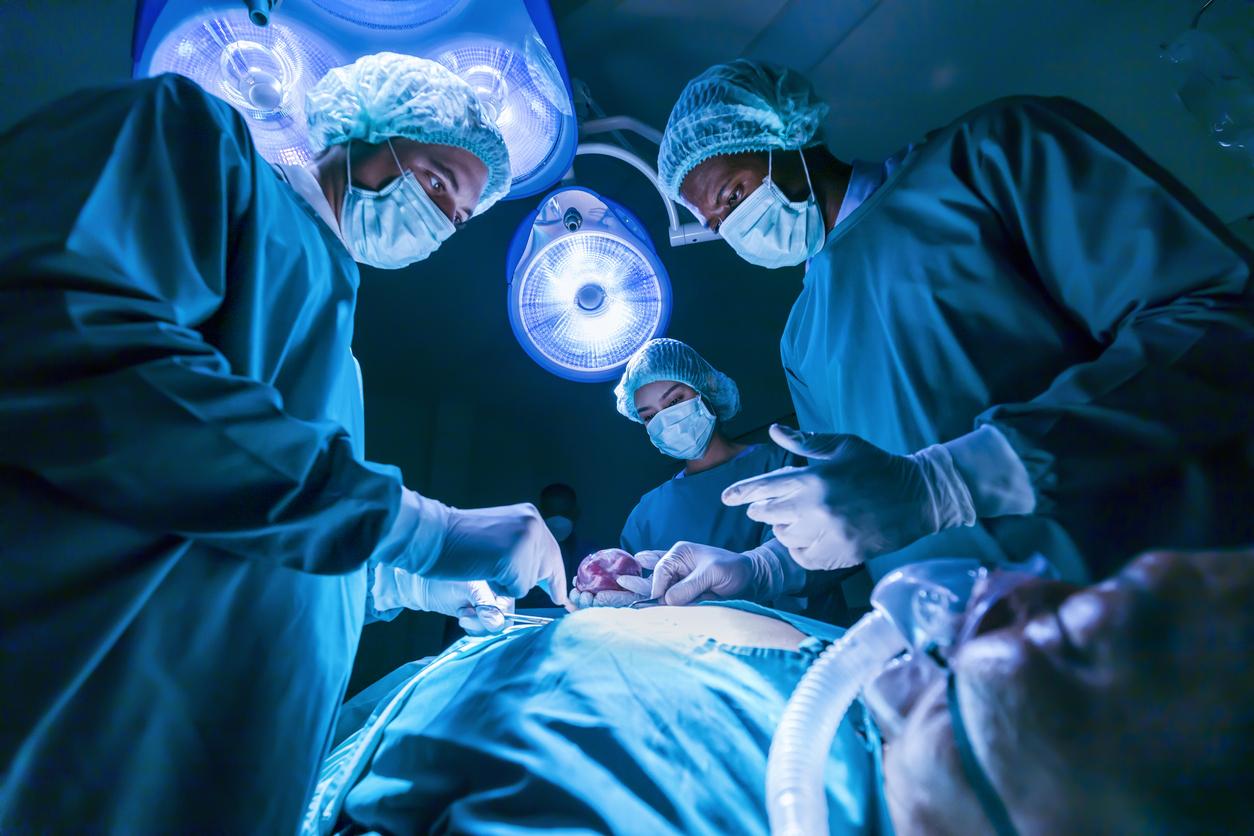
-1730888646.jpg)
